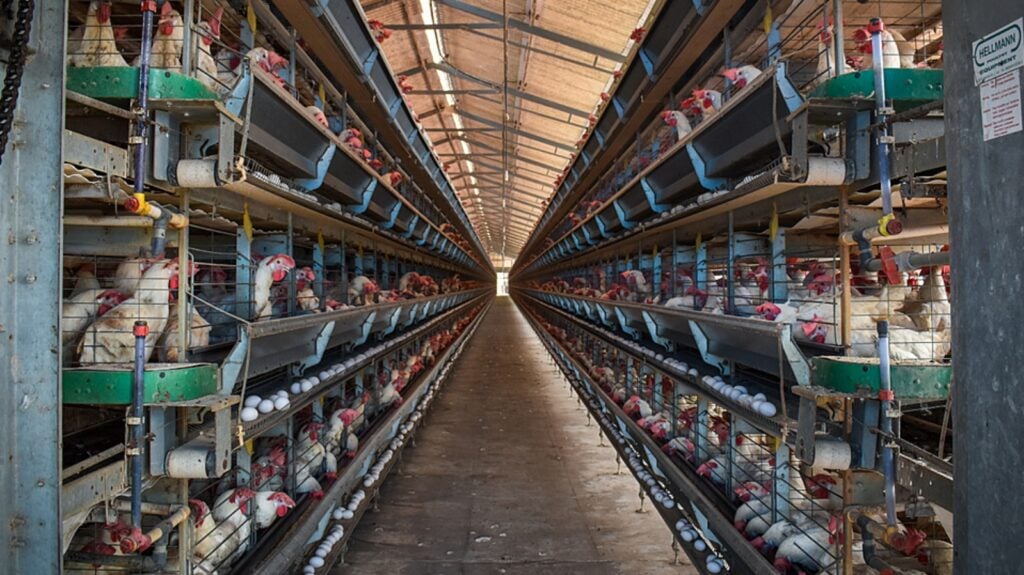Australian battery-farmed eggs will be a thing of the past by 2036 due to stricter animal welfare laws, it has been confirmed.
The announcement comes after extensive campaigning from domestic animal welfare groups aimed directly at the egg industry.
In Australia’s current battery cage system, birds can be housed with up to nine others. In these instances, each has space of less than an A4 sheet of paper to move, with just enough height to stand.
The industry has now agreed to follow in China, Europe, and New Zealand’s footsteps by scrapping battery processes.
The news was broken by the publication of the newly finalized Australian Animal Welfare Standards and Guidelines for Poultry. The policy specifically refers to improvements that must be made to the poultry sector. These include a phasing out of battery-farmed eggs and improved general conditions for animals.
The guidelines are the product of seven years of negotiations between government officials and the poultry industry.
Will chicken welfare improve?
According to the Australian Bureau of Statistics, the domestic poultry flock increased 10 percent in the last year to around 135 million birds. This was in response to a higher demand for chicken meat and eggs.
As of June 2021, the country reportedly housed 17 million layer hens, 5.36 million of which were caged.
Egg producers are now legally required to switch up their laying processes, and they have up to 14 years to do so How long they will take is dependent on the size and age of their current facilities.
By 2036, all egg professionals must comply with minimum space regulations, which require 750 square centimeters of “usable space” per bird. This applies to those kept in a cage with two or more other hens. When caged alone, birds should be given one square meter of space.
One square meter is considered the absolute minimum that a hen should be given, with two square meters being preferable. Experts recommend giving hens as much space as possible to avoid bullying and serious animal injuries.
The egg sector up in arms
Industry advocacy group Egg Farmers of Australia has responded to the new reform, stating that it is “dissatisfied” with the phase-out timeline.
Members are reportedly disappointed that they are not being given the option to continue producing battery-farmed eggs for at least another 24 years, as highlighted in a group statement.
“Unfortunately, the review totally ignored evidence on why conventional cages should continue until 2046,” group CEO Melinda Hashimoto said.
She continued: “The document says conventional cage farming must cease with a timeline suggested as early as 2031 and at the latest by 2036. It’s 10 years too early and could drive many family egg farmers to the wall.”
A ‘significant win for animal welfare’
RSPCA Australia’s chief executive Rochard Mussell, however, has celebrated the reform and called it a win for animal welfare in the country.
“But most importantly, it will eventually be a win for the millions of layer hens confined to battery cages,” he said in a statement.
“These poultry standards and guidelines were under review for nearly seven years. The phase out is the right result, and it should have been put in place six years ago. Millions more layer hens have had to endure barren battery cages as a result of these delays.”
The Humane Society of Australia, Animals Australia, and the Australian Alliance for Animals have also celebrated the reform, but they have criticized the phase-out timescale.






